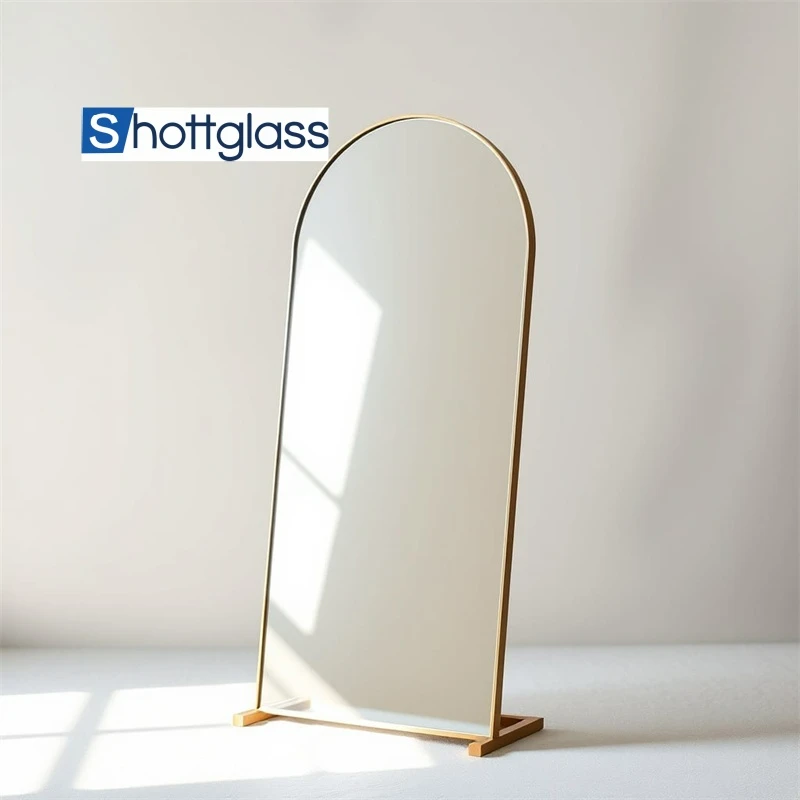Oct . 17, 2024 15:58 Back to list
Float Glass Sheet: A Clear Choice for Modern Applications
Float glass sheet is a staple in the glass industry, recognized for its superior quality and widespread use in a variety of applications. Known for its smooth and flawless surface, float glass is created using a unique process that ensures even thickness and clarity. In this article, we’ll explore what float glass sheet is, the different types available, its many advantages, and the float glass manufacturing process that makes it such a valuable material in construction and beyond.
What is Float Glass Sheet?
A float glass sheet is produced by floating molten glass on a bed of molten tin, which gives it a perfectly flat and uniform surface. This method, known as the float glass manufacturing process, was developed to improve the quality of glass and eliminate surface irregularities, making it ideal for modern architectural and industrial applications.
Float glass is commonly used in windows, mirrors, and furniture, where both clarity and strength are required. Its versatility makes it a popular choice for both residential and commercial projects.
Types of Float Glass Sheet (By Color and Quality)
There are various types of float glass sheet, differentiated by color, thickness, and quality. Clear or transparent glass sheet is the most common type, providing an unobstructed view and allowing natural light to pass through with minimal distortion.
Additionally, float glass sheets can be tinted in various colors, such as green, bronze, or gray, to reduce glare and control solar heat gain. High-quality float glass is also available in ultra-clear or low-iron varieties, which reduce the greenish tint found in standard glass, making it ideal for displays and facades where absolute clarity is essential.
Advantages of Float Glass Sheet
The benefits of using float glass sheet are numerous, making it one of the most preferred materials in the construction industry. One of the primary advantages is its optical clarity. Transparent glass sheet provides excellent light transmission, making spaces feel brighter and more open. This feature is especially valuable in architectural applications such as windows, curtain walls, and skylights.
Durability is another major advantage of float glass. While it can be tempered or laminated for added strength and safety, even standard float glass sheet is resistant to scratches and mechanical stress. Its smooth surface also makes it easy to clean and maintain.
In addition, float glass offers thermal and acoustic insulation properties, especially when used in insulated glass units (IGUs). This makes it a suitable choice for energy-efficient buildings and noise reduction in urban environments.
What is Float Glass Used For?
The uses of float glass sheet are vast and varied. In residential settings, it’s commonly used in windows, doors, shower enclosures, and tabletops. Its clarity and smoothness make it ideal for mirrors and display cases as well.
In commercial and industrial applications, float glass is widely used for facades, partitions, and interior design elements such as balustrades and office dividers. What is float glass used for goes beyond traditional construction—it's also essential in the automotive industry for vehicle windows and in the manufacturing of solar panels due to its durability and high light transmission.
Float Glass Manufacturing Process
The float glass manufacturing process is a remarkable method that revolutionized the production of high-quality glass. It begins by melting raw materials, including sand, soda ash, and limestone, in a furnace at extremely high temperatures. The molten glass is then floated on a bed of molten tin, where it spreads out and forms a perfectly flat surface.
Once the glass has cooled enough to solidify, it is passed through an annealing lehr to gradually cool and relieve any internal stresses. The final result is a flawless float glass sheet with uniform thickness and exceptional clarity. Depending on the intended application, the glass can then be further processed by tempering, laminating, or coating.
Choosing float glass sheet for your next project ensures a balance of strength, clarity, and versatility. Its smooth surface and high transparency make it suitable for a wide range of applications, from simple windows to intricate architectural designs. The ability to customize the color, thickness, and finish further adds to its appeal, allowing architects and builders to achieve both aesthetic and functional goals.
Whether you’re looking for transparent glass sheet for a commercial building or exploring the many advantages of float glass for industrial use, this material stands out as a superior choice. With advancements in the float glass manufacturing process, the quality and performance of float glass sheets continue to improve, making them an indispensable material in modern construction.
In conclusion, float glass offers unmatched quality and versatility, making it a clear choice for architects, builders, and designers. Its widespread use, combined with the ability to customize its appearance and properties, ensures that float glass sheet will remain a cornerstone of the glass industry for years to come.
-
Chemically Strengthened Glass vs Tempered Glass
NewsJul.18,2025
-
Custom Frosted Glass Applications
NewsJul.18,2025
-
What’s the Difference Between Obscure Glass and Frosted Glass?
NewsJul.18,2025
-
Bullet Resistant Glass Levels
NewsJul.18,2025
-
Silver Wall Mirrors for Living Room
NewsJul.18,2025
-
Bullet Resistant Glass Definition
NewsJul.18,2025
Related PRODUCTS














